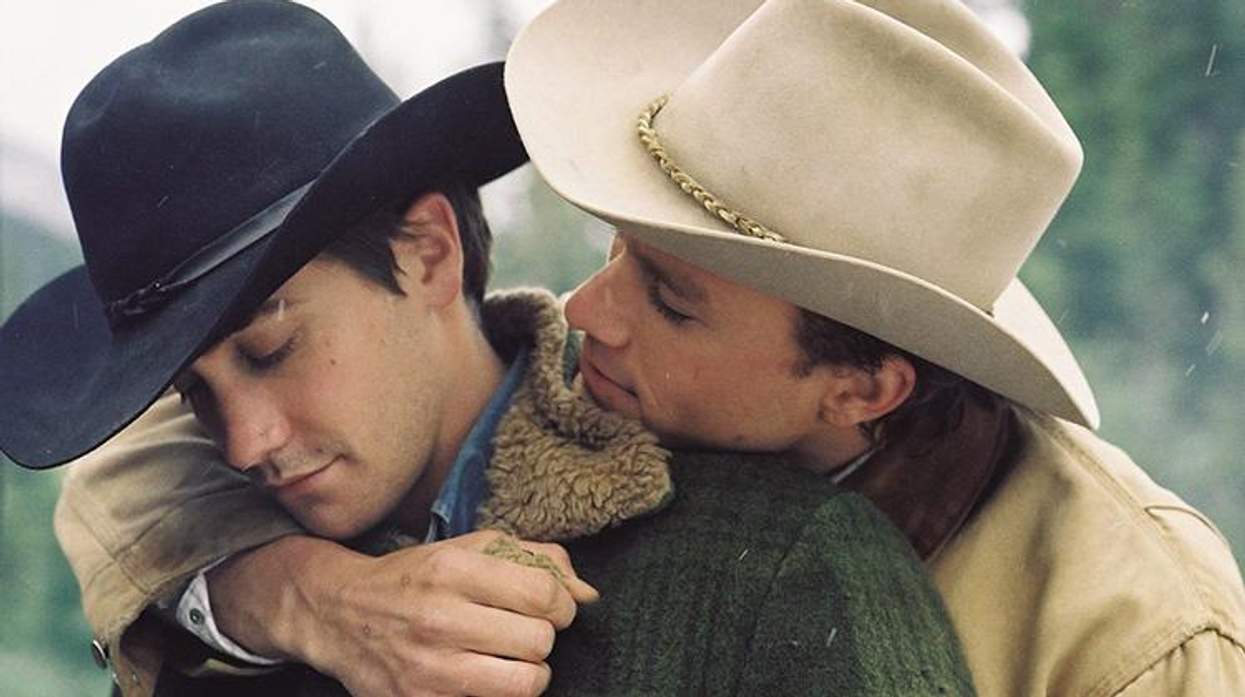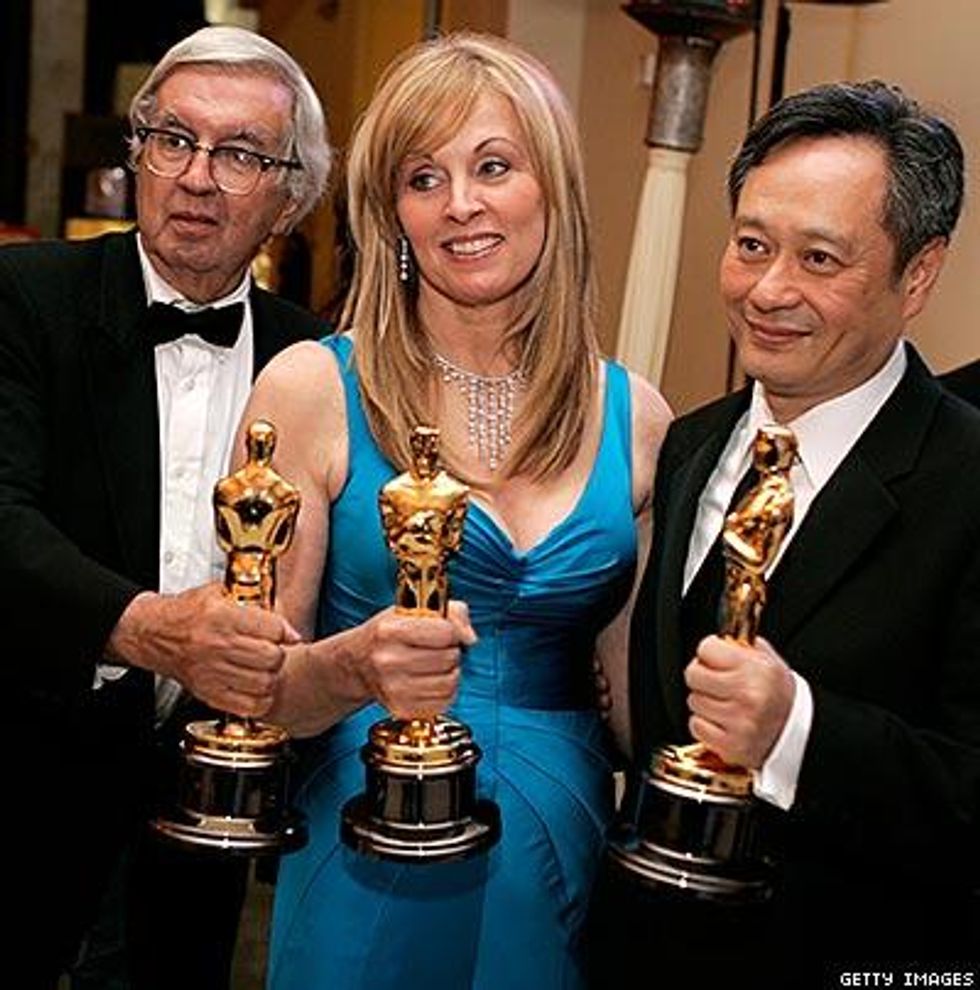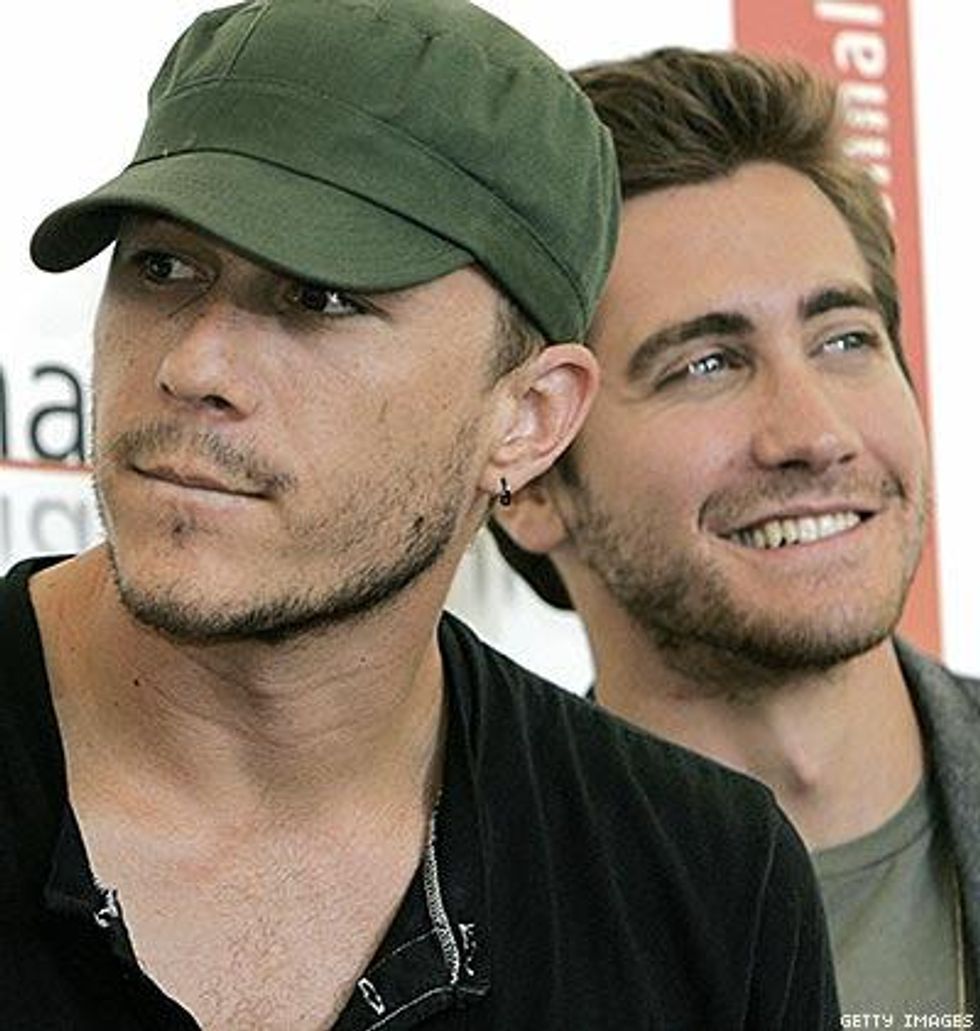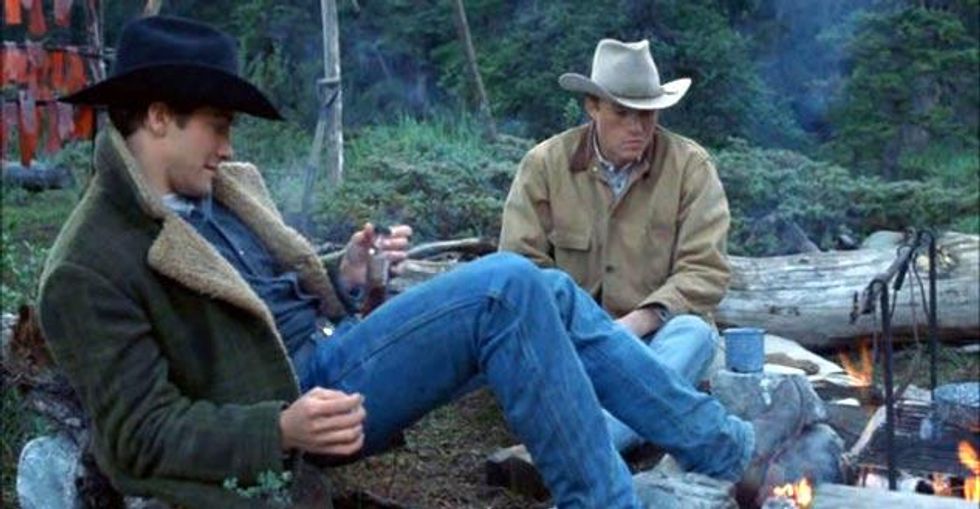By any measure, Brokeback Mountain was a groundbreaking masterpiece. The 2005 film stars Heath Ledger and Jake Gyllenhaal as two cowboys whose secret and forbidden love affair burns through many years of their lives.
In addition to being one of the greatest love stories ever captured on film, Brokeback Mountain introduced the world to the fact that gay cowboys and ranchers exist, even in that bastion of hypermasculinity that is the American West.
Based on the short story by Annie Proulx, the film was adapted for the screen and produced by Larry McMurtry and his longtime writing and producing partner, Diana Ossana. The two of them won the Best Adapted Screenplay Oscar, a Golden Globe Award, and a Writers Guild of America Award (among many others) for Brokeback Mountain.
America's preeminent chronicler of the West, McMurtry won the Pulitzer Prize for his epic novel Lonesome Dove, which he later adapted as a TV miniseries and series. Oscar-winning films based on his novels include Hud, The Last Picture Show, and Terms of Endearment.

Brokeback Mountain was nominated for eight Oscars and won three -- for director Ang Lee, screenwriters McMurtry and Ossana, and composer Gustavo Santaolalla. It also had wins at the BAFTA and Golden Globe Awards. The film broke the mold of movie love stories and became one of the most important gay-themed films of all time. In 2014, The Advocate named it to the number one spot on our list of "The Top 175 Essential Films of All Time for LGBT Viewers."
In honor of the film's 10th anniversary in 2015, McMurtry and Ossana sat down for an interview with The Advocate about creating this cinematic masterpiece.
The Advocate: What first drew you to the project?
Diana Ossana: Some friends and I were staying at Larry's place in 1997. A young writer friend of mine named Mark Poirier -- who was still in the closet at the time -- gave me Annie Proulx's story in The New Yorker to read. I was really stunned by its power. The next day I gave it to Larry.
Larry McMurtry: It's hard for me to read short fiction because I can't write it. I was also stunned. I come from a ranching background, and the story is a true masterpiece about the American West.
Ossana: I asked him if he thought it could be a movie, and for the first and last time he immediately agreed with me. We wrote a fan letter to Annie Proulx and then optioned the story with our own money.
What was your process of expanding the short story into a full-length screenplay?
Ossana: The first thing we did was we scripted the story, which was only a third of the final screenplay. Larry writes five pages a day, then I add to them, change and delete things, then we move forward.
McMurtry: You had to see the men's domestic lives [which the screenwriters created] or it just wouldn't work. We knew we had a masterpiece and we had to treat it with great care.
Ossana: Annie later said, "Larry and Diana added flesh to my bones."
After shopping the screenplay around and some failed attempts to get it made, how did the film finally come to be?
Ossana: My good friend Michael Costigan and Focus Features came on board to produce it. We wanted Ang Lee to direct it, but he was making Hulk. After that was finished, we got Ang to make the film.
Another actor was attached to play Ennis, but he wasn't working out. My daughter suggested Heath Ledger and I showed his film Monster's Ball to Larry. He said, "That young man is Ennis." We sent Heath the script and he said it was the most beautiful script he'd ever read in his life.
What was it like to see the characters come to life while you were filming?
Ossana: I was on the set every day because I didn't want it to veer into sentimentality or camp. We wanted to keep it raw and unflinching. On the first day when I saw the boys in costume I was so overwhelmed that these characters had come to life that I needed to go away and sit down for about an hour.
 What was it about working with Heath Ledger and Jake Gyllenhaal (pictured right) that impressed you most?
What was it about working with Heath Ledger and Jake Gyllenhaal (pictured right) that impressed you most?
Ossana: They were so great together, but they worked so differently. Jake would give the director so many different choices on each take. But every time the cameras rolled, Heath was Ennis.
Brokeback Mountain losing the Best Picture Oscar to the glorified TV movie Crash is one of the most famous slights in Oscar history. Any sense of what might have contributed to that?
McMurtry: You could write a whole booklet about films that lost the Best Picture Oscar.
Ossana: Some people think it did win Best Picture! But the largest branch of the academy is actors, and Crash employed a lot of them. It was also an L.A. story. And there was obviously some homophobia involved.
Some of the older actors never even saw the film. Ernest Borgnine and Tony Curtis both said so publicly. I was at a pre-Oscar party at the home of [Crash writer-director] Paul Haggis, and Clint Eastwood was there. I told Paul I wanted to meet him and Paul said, "You know, he hasn't seen your film." The older white males had trouble with it.
McMurtry: I said, "What are they afraid of? It's just a movie!"
Ossana: Jack Nicholson was stunned when he opened the envelope. He told us, "I voted for you guys!"
 What were some responses to the film from your folks back home?
What were some responses to the film from your folks back home?
McMurtry: They're very afraid of it in cowboy country. My hometown [Archer City, Texas] is not an advanced place. They didn't want to believe that there are gay cowboys. I wish I'd written that story, and maybe if I'd gone into the right saloon at the right time, I would have.
Ossana: I'm from St. Louis, and only one person in my family saw the film. They were happy for me, but they're just misinformed.
The film is incredibly subtle yet ultimately devastating. How did you manage to achieve that?
Ossana: That story is very subtle. The response from some people was, "When I first saw it, I wasn't sure what the big deal was. But three days later I found myself weeping." The power of those two men being in love is subtle and subversive, as they deal with rural homophobia and all the things they have to endure. We knew it was a story that needed a delicate, sensitive, intelligent hand.
Despite the success of Brokeback Mountain, very few gay-centered mainstream films have been made since. Why do you think that is?
Ossana: I thought there would've been more 10 years later, especially now with gay marriage becoming law. We received letters and messages from folks after the Supreme Court ruling thanking us after all this time.
McMurtry: People think of Hollywood as being very liberal, but it's not. The people in charge can be very conservative. And there's a lot of ignorance on the part of the rural populace.
Ossana: It's also hard to know what films have been written that haven't been made.
McMurtry: It took eight years for them to make Terms of Endearment.
Osanna: And the controversy then was that it had two female leads!
What comes to mind as you look back on Brokeback Mountain after 10 years?
Ossana: We were lucky to have come upon that story when we did.
Take a look back at the Brokeback Mountain trailer below:
WATCH: Diana Ossana and Larry McMurtry accept the Best Adapted Screenplay Oscar for Brokeback Mountain:



 What was it about working with Heath Ledger and Jake Gyllenhaal (pictured right) that impressed you most?
What was it about working with Heath Ledger and Jake Gyllenhaal (pictured right) that impressed you most? What were some responses to the film from your folks back home?
What were some responses to the film from your folks back home?

































































Charlie Kirk DID say stoning gay people was the 'perfect law' — and these other heinous quotes